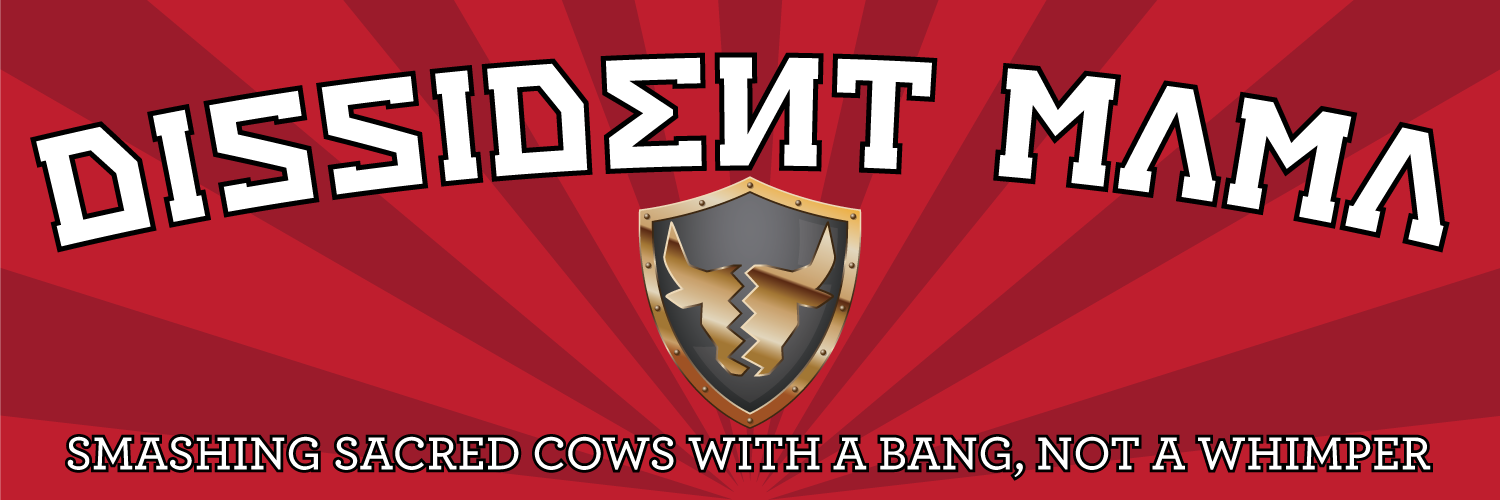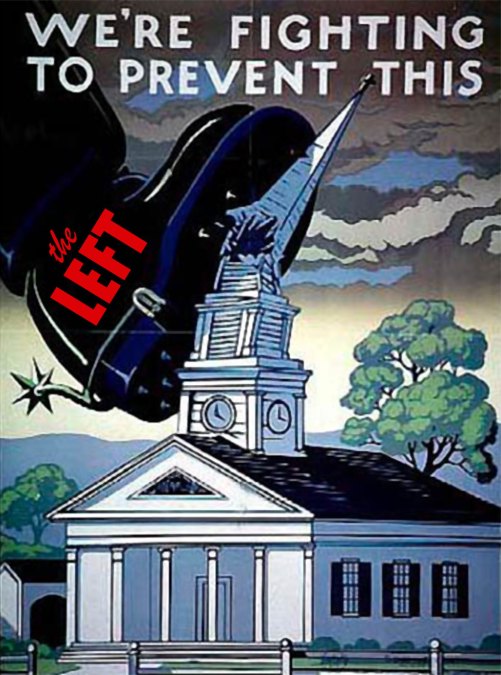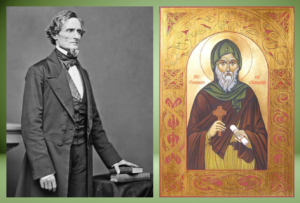“Criticizing Judaism is not anti-Semitic. Criticizing the policies of the state of Israel is not ant-Semitic. Criticizing the evil that some Jews do is not anti-Semitic,” wrote Father John Whiteford. “Lumping all Jews together, when criticizing the evils that some Jews do is anti-Semitic.”
Just as this Orthodox Christian priest so pointedly explains, it’s okay to discuss the bad things some people do and dig into their motivations. I mean, that is what the human brain does: it categorizes, recognizes patterns, and sorts as to reduce threats and to gain knowledge. And being Jewish (or female or black or gay or Latino or Muslim or an immigrant or a neocon or Antifa) doesn’t somehow give a person a pass.
The victimology racket (see Part 2) and selective outrage (see Part 1) are two of the biggest trees blocking the forest of intellectual inquiry and honesty. It banks on people ignoring their very nature. So, let’s keep clearing the view. It’s okay, I promise.
The who and the why
It’s okay to look at “the who” and say, for example, that the Pharisees and Sadducees played a role in the crucifixion of Jesus. That isn’t anti-Semitism; it’s just historical fact.
It’s okay to look at “the why” behind these two powerful sects, who were considered corrupt by first-century devout Jews themselves. These elite Hebrews saw the troublemaker from Nazareth as competition and a threat to both their religious authority and political power. It’s okay to understand and admit that their Jewishness had something to do with their actions. Duh.
“If you can cut the people off from their history, then they can be easily persuaded.”
— Karl Marx
It’s okay to look at feminism and see that “Jewish women have been particularly well represented in the leadership of the feminist movement,” said Jewish writer Marjorie Ingall. Why? “Maybe Jewish women, who’ve always been or felt like The Other, have felt they had less to lose by stirring things up.” Emotion mixed with victimology and feelings of marginalization can surely make for a toxic cocktail.
Money-lending on the margins
It’s okay to look at mercantilism and banking and see “it’s undeniable that Jews are well-represented in finance and business … (and) are disproportionately among the wealthiest Americans and over-represented in top positions in the financial world,” blogger MJL commented at My Jewish Learning.
It’s estimated that as many as three-fourths of Jews in Central and Western Europe in the 18th century were moneylenders. Heck, it was Jewish-born “Karl Marx, the philosopher who first popularized the idea that capitalism is inherently exploitative, (and) singled out Jews in particular for their role in promoting it,” added MJL.
Why? Because throughout much of their history in Europe, Jews were often denied entrance to professional guilds and the right to own land. So, as opposed to farming, they became heavily involved in usury: money-lending with interest. Christians and Muslims considered this an unethical trade, thus, Jews inevitably became linked with the unsavory practice and were consequently pegged as alien.

It didn’t help matters much that Jewish law also forbids usury between Jews. Yet, Jews are allowed to loan money with interest to goyim (read: non-Jews). “The reason the Torah prohibits ribit [the Hebrew term for ‘increase’] between Jews is simply because your fellow Jew is family,” explained Tzvi Freeman and Rabbi Yehuda Shurpin.
Such perceived hypocrisy only served to exacerbate skepticism of Jews. Nor did it help matters that Jews often self-segregated by choice, solidifying their image as outsiders. Part catch-22 and part tribalism, usury was a blessing monetarily and a curse socially.
Storytellers, secularism, and sex
It’s okay to look at Hollywood and see that “the Jews are so dominant (that) I had to scour the trades to come up with six Gentiles in high positions at entertainment companies,” journalist Joel Stein quipped in the LA Times. “When I called them to talk about their incredible advancement, five of them refused to talk to me, apparently out of fear of insulting Jews.” Now that’s funny.
“If anybody can genuinely be said to control Tinseltown, it’s probably the 25 people who run the 12 main film studios,” spelled out editor J.J. Goldberg. “Of those 25, 21 are Jewish, or 84%. That’s simple math.”
It’s okay to see that porn is part and parcel of the American-consumerist media complex. “Though Jews make up only 2% of the American population, they have been prominent in pornography,” remarked Nathan Abrams, Jewish professor of American history.
“Jews became involved in the porn industry for much the same reasons that their co-religionists became involved in Hollywood,” as well as usury. “They were attracted to an industry primarily because it admitted them,” he continued. “Many erotica dealers in the book trade between 1890 and 1940 were immigrant Jews of German origin.”
Why? It could be because they are driven by “an atavistic hatred of Christian authority (and) … are trying to weaken the dominant culture in America by moral subversion,” Abrams surmised. As Al Goldstein, the publisher of Screw, boldly stated, “The only reason that Jews are in pornography is that we think that Christ sucks.”
“Middlemen”
Or pornographers could just be “individuals pursuing the American dream,” as ADL director Abe Foxman once commented. Obviously, many pious Jews, like Rabbi Raymond Apple, dissent to this sick secular mindset, and preach that sex is an intimate act, not a public spectacle, and that in the confines of marriage, it’s as an expression of godly unity.
Or it could be because “Jews, when they found themselves excluded from a field of endeavor, turned to a profession in which they sensed they could eventually thrive by cooperating with colleagues in a community of effort,” explained Jewish professor Jay A. Gertzman. “Jews have for a very long time cultivated the temperament and talents of middlemen, and they are proud of these abilities.”
Maybe it’s because of the story-telling customs of the Hebrews that lend Jews to careers in the media or in film. Maybe it’s because irreligious Jews want to destroy Christian morality. Maybe it’s just for the money.

Maybe it’s Judaism’s fostering of Talmudic scholarship throughout the ages. The consequence? High literacy rates and, thus, an educated people of ideas. After all, the Ashkenazi (the Jews of France, Germany, and other parts of Central and Eastern Europe, and their descendants) do have the highest IQs among all people groups.
“Layers”
Maybe it’s because they’re a diaspora people – a scattered tribe but with loose allegiances, sometimes religious, sometimes ethnic, sometimes political. How and where they lived had an effect on their worldview. Or maybe it’s a mix and is subjective to each individual. Any way you look at it, though, the patterns are still astounding.
Still, though, “Jewishness” is not a monolith. For instance, the Ashkenazi were often isolated from their non-Jewish neighbors, sometimes voluntarily and sometimes involuntarily, and did live under more repression as a consequence.
In contrast, the Sephardic (the Iberian Penninsula Jews of Spain, Portugal, North Africa, and their descendants) were historically more integrated into the cultures where they settled and lived under more benevolent circumstances. Whereas the Sephardic generally assimilated, the Ashkenazi often clashed with their surrounding (typically Christian) culture, making them distrustful of it and the culture of them.
Interestingly, the first Jewish settlers in North America were Sephardic. Up until about 1830, Charleston, South Carolina, had more Jewish citizens than anywhere else on the continent.
Place and circumstance
“Nowhere else in America – certainly not in the antebellum North – had Jews been accorded such an opportunity to be complete equals as in the Old South,” wrote historian Rabbi Bertram Korn. “Political recognition, social acceptance, and personal fame were accorded to Jews of merit.”
There were high rates of intermarriage between Southern Jews and Gentiles. Consequently, antebellum Jews assimilated to Southern culture and felt allegiance to their new home. “For Southern Jews, loyalty to the Confederacy often was a matter of intense personal gratitude,” echoed Jewish historian Howard Sachar.

And wartime was no exception. According to journalist Herbert Tobias Ezekiel and historian Gaston Lichtenstein, Robert E. Lee tried to “facilitate the observance of the duties of their religion … (to) Israelites in the army,” granting Jewish Confederates time for holy days when possible. When challenged by a captain, Lee advised his subordinate to “always respect the religious views and feelings of others.”
Today, and depending upon how exactly individuals identify, Jews represent about 2.6% of the U.S. population, with most being Ashkenazi. In Israel, the Mizrahim (Jews of Middle Eastern descent and have been in the land or in surrounding Arab regions for millennia) are more than half of the country’s population, with Ashkenazi, Sephardic, and other diaspora communities comprising the rest of the secular-socialist Jewish State.
“Utopian impulse”
We could go back to ancient times to study “the most tenacious people in history,” as journalist Paul Johnson described the Hebrews. But for our purposes – digging into the “utopian impulse” of secular-progressive Jews, as Tel Aviv University professor Eli Barnavi classifies the wont – let’s begin with a little French Revolution.
“For the first time a new archetype, which had always existed in embryonic form, began to emerge from the shadows: the revolutionary Jew,” Barnavi said. “Clericalists in Italy swore enmity to ‘Gauls, Jacobins, and Jews.'” Christianity was utterly smashed by the Jacobins and replaced with the new atheist religion. “Once again, as during the Reformation, traditionalists saw a sinister link between the Torah and subversion.”

Or more the Talmud. Some say it was this rabbinic-law text that actually taught hatred of Gentiles for thousands of years, such as Israel Hakkak, Hebrew University professor and human-rights activist. Whatever the case, it was secular-humanist provocation that ultimately pushed the Jacobins and their godless ideology.
Jewish people experienced unprecedented emancipation in post-revolution France, and Napoleon continued reforms in all French-occupied and annexed states. This included eliminating quotas and Jewish disabilities and expanding Jewish rights collectively.
Eventually, the Reign of Terror ended in France with the execution of Maximilien Robespierre in 1794. Yet even with political advancements and increased civil liberties, many non-religious Jews simply weren’t grateful.
Rather, they remained committed to socialist upheaval and smashing the old order, which in turn spawned more anti-Jewishness throughout Europe. And with the Revolutions of 1848 bringing about additional Jewish emancipation in Europe, deep-seeded resentment among the native populations often followed, as did the thanklessness of many Jews.
Tenacity and revolution
Many of these European revolutionaries fled Europe for the shores of America, importing their love of centralized democracy and despotism, making them feel right at home among radical Republicans, Northern partisans, and Jacobin Yankees, as historian Clyde Wilson calls them. After the Confederacy finally succumbed to bloody invasion came the immigration waves of the late-19th and early-20th centuries.
This included more than 2 million Jews. Most were Yiddish-speaking Ashkenazi who settled in the NYC area, where the seditious spirit among secular Jews slowly marinated, blending well with the already established puritanical-progressive worldview.
But in Europe, secular Jews found themselves “among the leadership and cadres of all major revolutionary movements” by the turn of the 20th century, Barnavi said. The cycle of radical push and traditional push-back that had been happening across the pond for so long was unfolding and would soon come to a head.
“Rising expectations, frustrated by early manifestations of modern anti-Semitism,” he explained, “combined with demographic growth and expanding circles of secularly educated youth intoxicated with the heady wine of new ideals, probably account for the fact that utopian aspirations became an intellectual hallmark of Jewish society.”
Another secular revolution was brewing and would again have Christianity in its cross hairs. But this time the “enlightened” tyrants would have more staying power. To see how godless ideas result in deadly consequences, see Part 4.
Note: The lead graphic is an adaptation of a U.S. propaganda poster used against the Nazis during WWII. My pals at Libertopia tweaked it to represent the current threat we’re facing.






Comments
“Interestingly, the first Jewish settlers in North America were Sephardic. Up until about 1830, Charleston, South Carolina, had more Jewish citizens than anywhere else on the continent.” -DM
“Yet, although Jews might be attracted by the critical aspect of Socialist theory and even play important parts in nascent Socialist movements-the names of Trotsky, Kamenev, Zinovyev, Kun, Bernstein, Eisner, Blum, Bauer come to mind-they are constitutionally averse to its conformism, its anti-individualism, its moralizing cant, its intellectual controls. This may be less evident to an American or East European observer and for the same reason: In Eastern Europe there lived the most indigent part of the Continent’s Jewry and this was precisely the element which in the last three decades before the World War I largely immigrated into America. For sociological reasons they were most likely to embrace leftist ideas. This was by no means the case with the old established American Jewry.”- Eric von Kuehnelt-Leddihn, Leftism
It is important to separate the two Jewish ethnicities and their respective influences on culture.
“After all, godless ideas typically do result in deadly consequences.” – DM
Speaking of Orthodox Christianity (from your last response to me)…
“And if I were called upon to identify briefly the principal trait of the entire 20th century, here too, I would be unable to find anything more precise and pithy than to repeat once again: “Men have forgotten God.” The failings of human consciousness, deprived of its divine dimension, have been a determining factor in all the major crimes of this century.” – Aleksandr Solzhenitsyn, 1983 Templeton Address
Author
TL, sorry I’m just getting back to you. I’ve been in Russia since 12/18 (and still am). In fact, it’s my last night here, and I’m finally getting around to checking comments and getting back into the swing of things. I love the Solzhenitsyn quote. I have thought about him a lot during my 3-week adventure here. I visited his grave at Donskoy Monastery, and at the Gulag History Museum, I saw some of his belongings as well as a door he built while in a labor camp. Truly, he was a man of great insight into the madness of Soviet Communism. Sure, one can say it’s because he lived through it or suffered at the hands of it, but plenty of people can claim those banners, sadly, yet they still don’t fully grasp the unfettered evil that it was. Maybe it’s a defense mechanism for them. Maybe it’s because it’s too hurtful to reflect. Maybe it’s because it would cause them such pain that they cannot speak of it. I get that, but that’s why Solzhenitsyn is such a notable figure to me. A hero. A truth-teller of epic proportions. And a man who had forgotten God himself and embraced statism, only to realize the error of his ways through the most dramatic and tragic of experiences. He spent the rest of his days righting those wrongs, despite the consequences, because he knew too well the real-life manifestations of what godless totalitarianism brings about.
“Jewish people experienced unprecedented emancipation in post-revolution France, and Napoleon continued reforms in all French-occupied and annexed states.”
Leftism is all about uniformity. They pretend to champion diversity now, but this ‘diversity’ is only skin deep. They are still fanatical conformists in what really matters – ideas, culture, allegiance. It’s actually the rightist that is the true ‘diversitarian,’ because he believes in the right of self-determination – the right of a particular people, or in the extreme like me, the right of each individual, to choose the law by which to live under. This, at least in the short term, means a vast diversity of laws and customs is morally acceptable provided the people living under them more or less consent.
Uniformity feels like freedom to oppressed minorities, but it is a deal with the Devil and He tends to get his due when people turn their back on God.
By the way, I think this is your best of the three installments. I can’t find one thing to disagree with and I’ve learned quite a bit. Thanks for doing what you do!
Author
Thanks for your kind words, TL. They truly mean the world to me. I hope you and yours had a fantastic Christmas, and I look forward to hearing your deep thoughts in 2019!